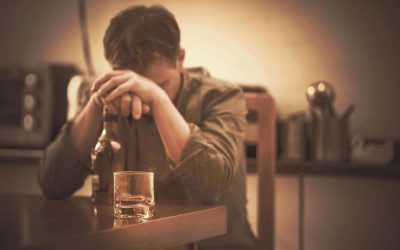They recognize the need for a supportive community and a drug-free environment to maintain sobriety and work towards a healthier life. The self-sufficiency phase is the last step in sober living, bringing the resident closer to independent living. In this phase, resident responsibilities increase while becoming more accountable for all decisions. For instance, residents can take the bus unaccompanied for long commutes or mentor a new resident. To get to self-sufficiency, the resident must complete the 12-step program and have a verifiable history of maintaining their sobriety.
- Sober housing can vary in terms of its format, size, and additional services provided.
- These homes aren’t subject to state licensing agency oversight since they don’t provide formal treatment services.
- This is not usual in Massachusetts, where the broader community is skeptical about recovery housing.
She will receive help and support from those knowledgeable about addiction and recovery. Our team will guide you in developing healthy habits, setting goals, and addressing any challenges that may arise during the recovery process. The primary requirement for living in a sober house is the commitment to maintaining sobriety and adhering to the house rules and guidelines. Sober living homes provide accommodations for both men and women, and some homes may offer specialized programs for specific populations, such as women-only or LGBTQ+ individuals.
Addiction = Isolation
Sober homes screen guests for alcohol and drugs, enforce house rules and curfew, and each guest holds their brothers and sisters accountable. We strive to create a mutual respect and accountability culture where residents can feel comfortable and secure in their journey toward lasting recovery. Through community involvement, holistic wellness practices, and evidence-based therapies, we aim to help our residents build the foundation for a fulfilling and sustainable life in recovery.
The government funds and administers the daily operations of a halfway house through its agencies. Sober House, Inc was founded in 2020 by Danielle Donohue and Jason Loomer. Our primary mission is to provide a stable, structured, and recovery experience for addicts & alcoholics. The goal is to work with each individual collaboratively on personal growth and to improve life skills.
Massachusetts Sober Living Homes
Recovery houses do not provide medical or clinical services to their residents. Residents support themselves by using the skills and knowledge learned during inpatient rehab treatment, counseling, and therapy to direct, encourage, and help one another to prevent relapse. Recovery houses reinforce a substance-free lifestyle by providing mutual help through peers in recovery, support groups, and recovery support services, including medical treatment for substance abuse.

Sober living homes are not inpatient drug and alcohol treatment facilities. Entry requirements vary, but most sober living homes in Massachusetts require residents to have completed some level of rehab or detox before admission. Residents can also commit to an outpatient rehab treatment program during their stay in the house.
Top 10 Best Sober Houses Near Boston, Massachusetts
During the day, the sober living home management encourages residents without a job to seek employment and pick on a new hobby or sport. Our mission is to provide safe shelter, food, clothing, recovery community networking, and anything else that could deter addicts and alcoholics in early recovery. Sober houses offer an important service to individuals in early recovery. Independent living is difficult, and sober housing sober houses boston offers an attractive alternative to many options available to men and women in early recovery. Residents in a Massachusetts sober living program enter into the program voluntarily and therefore can leave the sober home willfully. Conversely, most halfway house residents enter the program through a court order, and quitting before the agreed end date can have devastating consequences, including reincarceration.

Most residents engage in household chores, exercise, and personal grooming to start the day. Residents who work, school, or volunteer leave the facility to attend to these obligations. Residents in outpatient treatment may also report for therapy https://ecosoberhouse.com/ and counseling sessions. House Mentors and staff lead and support each sober living home; helping to ensure a positive recovery environment for all guests. We expect our residents to be actively involved in an individual recovery plan.
Sober Housing
Sober living programs and halfway houses are similar in the extent that they give support to individuals looking to maintain their sobriety. They provide a structured substance-free living arrangement for persons in recovery who must obey the facility’s rules, contribute to house costs, and perform any assigned responsibilities. Sober homes are typically group residences where individuals who have completed primary treatment can reside while they continue their recovery journey. They provide a substance-free, supportive housing environment that promotes sobriety, accountability, and personal growth. Residents are usually required to follow specific rules and guidelines to maintain a sober life and contribute to the overall well-being of the sober living community.
- However, residents may attend recovery-based group meetings or outpatient treatment while living in a sober living home.
- Most facility staff in a sober living house are older residents using their skills and experience learned in recovery to support newer residents.
- They provide the next level of care after a detox or substance abuse treatment program.

